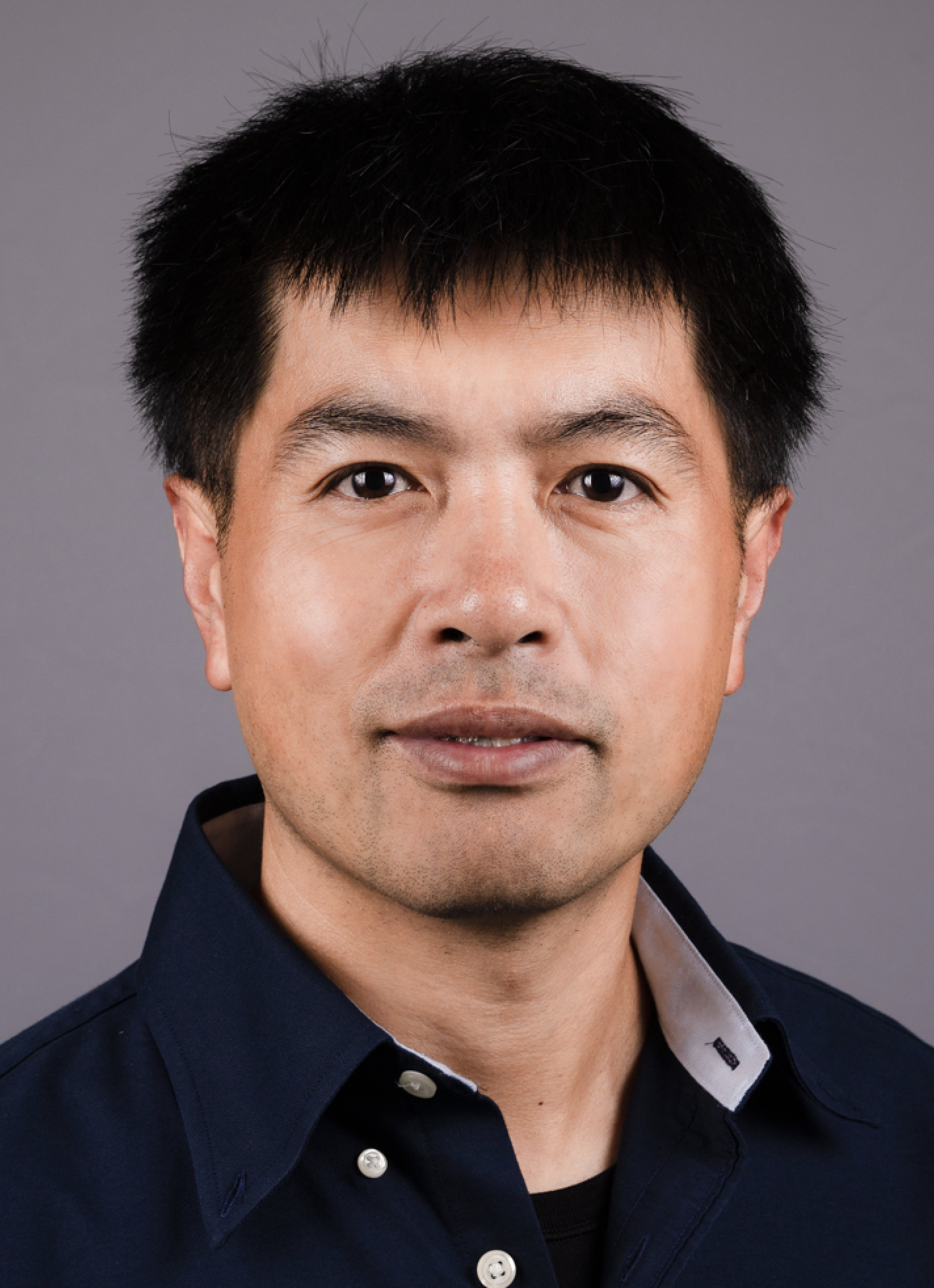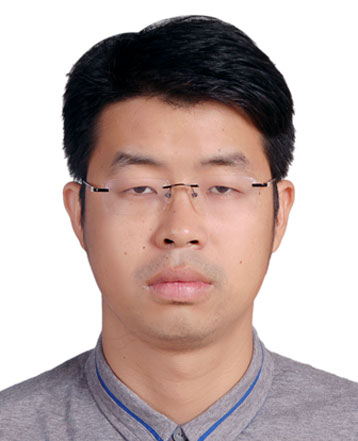
Keynote Speakers
Prof. Zhipeng Cai IEEE Fellow ACM Distinguished Member AAIA Fellow Georgia State University, USA | Profile: Dr. Zhipeng Cai is a Professor of Computer Science at Georgia State University, Affiliate Professor in the Department of Computer Information Systems, and Director of the INSPIRE Center. He leads the Innovative Computing and Networking (ICN) group, with research spanning high-performance computing, networking, privacy, and big data. A Fellow of IEEE and recipient of the NSF CAREER Award, Dr. Cai is ranked among the world’s top 0.05% of scholars by ScholarGPS and has authored over 100 IEEE/ACM Transactions papers with more than 18,000 citations. He is Editor-in-Chief ofElsevier High-Confidence Computing and serves on editorial boards for leading IEEE journals. He has chaired major conferences including ICDCS and SocialCom, and has supervised 24 PhD students, 15 now tenure-track faculty in the U.S. Committed to cybersecurity education, he co-develops Eureka Labs, providing free, hands-on security labs accessed by users from over 110 countries. Speech Title: The IoT Enabled Edge Computing: From Data Collection to Task Processing Abstract: The IoT-enabled edge network plays a crucial role in the IoT ecosystem. It serves as an intermediary layer among the sensor network, the cloud, and users, helping to reduce latency and alleviate computational costs. However, edge servers have limited resources, and effectively utilizing these resources to maximize the overall system's benefits remains a significant challenge in edge networking. This presentation will outline our efforts to address this challenge within the IoT-enabled edge computing framework, ranging from bottom-level data collection to top-level task processing. Our work includes strategies for collecting the freshest data through the IoT edge, managing services within the edge network, offloading tasks to the edge to reduce workload, and processing tasks effectively within the edge network. The effectiveness of all these works has been examined both theoretically and experimentally. |
Prof. Xiaoli Li IEEE Fellow Nanyang Technological University Singapore | Profile: Xiaoli is currently the Department Head and a Senior Principal Scientist at the Institute for Infocomm Research (I²R), A*STAR, Singapore. He also holds an adjunct full professorship at the School of Computer Science and Engineering, Nanyang Technological University (NTU). He will soon join the Singapore University of Technology and Design (SUTD) as the Head of the Information Systems Technology and Design (ISTD) Pillar. His research spans a broad spectrum of cutting-edge areas, including artificial intelligence, machine learning, data mining, and bioinformatics. Xiaoli has published over 380 peer-reviewed papers and has received more than ten best paper awards, reflecting the impact and quality of his research contributions. He currently serves as the Editor-in-Chief of theAnnual Review of Artificial Intelligence and as an Associate Editor for leading journals such asIEEE Transactions on Artificial Intelligence andKnowledge and Information Systems. He has also taken on key leadership roles in major international conferences, including serving as a general chair, program chair, or area chair for AAAI, IJCAI, ICLR, NeurIPS, KDD, and ICDM. Beyond academia, Xiaoli brings substantial industry experience, having successfully led more than ten R&D projects in collaboration with major players across sectors such as aerospace, telecommunications, insurance, and professional services. Xiaoli is a Fellow of both IEEE and the Asia-Pacific Artificial Intelligence Association (AAIA). He has been recognized among the world’s top 2% scientists in the AI field by Stanford University, named a Clarivate Highly Cited Researcher, and ranked in the top 0.5% of scholars globally in the latest 2024 ScholarGPS rankings. Speech Title: Advanced Time Series Foundation Models and Scalable Preference Optimization for Large Language Models Abstract: The rapid proliferation of sensor data across industries—ranging from manufacturing to aerospace—has unlocked tremendous opportunities for AI-driven time series analytics. This talk explores how cutting-edge AI techniques are transforming real-world applications by enabling predictive maintenance, optimizing operational decision-making, and advancing intelligent learning systems. In industrial domains, AI-powered time series foundation models enhance operational efficiency by accurately forecasting equipment failures, minimizing unplanned downtime, and providing precise remaining useful life (RUL) estimates. We will address key challenges in this area, including building high-precision models, deploying them efficiently on edge devices, and ensuring adaptability across heterogeneous industrial environments. The second part of the talk focuses on advancing the scalability and efficiency of large language models (LLMs) through parameter-efficient fine-tuning and preference data construction. These techniques allow for substantial parameter reduction and enable effective preference optimization, making it possible to tailor LLMs to diverse downstream tasks with reduced computational cost and improved customization capability. |
Prof. Jiangtao Wang National Young Talent University of Science and Technology of China, China | Profile: Dr. Wang is a Professor at the School of AI and Data Science, University of Science and Technology of China (USTC). Before joining USTC, he was an Assistant Professor and Associate Professor in the UK. Dr. Wang specializes in developing AI algorithms to analyze complex healthcare data, aiming to improve healthcare delivery. He has developed advanced machine learning models for population health monitoring, diagnosis prediction, drug-drug interaction analysis, and COVID-19 severity estimation, often outperforming current methods on real-world data. Speech Title: Data-Knowledge Dual-Driven AI and its Applications in Population Health Abstract: Artificial Intelligence (AI) is transforming healthcare by enabling predictive models, automated diagnostics, and personalized treatment plans. However, realizing the full potential of AI in health faces a significant challenge: the scarcity of high-quality labeled data. Many healthcare applications, such as disease prediction, drug interaction analysis, and public health monitoring, require vast amounts of data to train accurate models. Yet, health data is often limited, fragmented, or difficult to obtain due to privacy concerns, patient diversity, and the complexity of medical conditions. This "low-data challenge" poses a critical barrier to advancing AI-driven solutions in healthcare. In this talk, I explore how domain knowledge—such as medical expertise, clinical guidelines, and epidemiological insights—can play a crucial role in addressing this issue. By incorporating expert knowledge into AI models, we can enhance learning from small datasets and generate more reliable predictions. Through case studies in population health, we will demonstrate practical applications, such as the use of expert-informed models for predicting health outcomes and assessing environmental health risks. These examples showcase how combining AI techniques with domain knowledge not only helps overcome the data limitation but also produces actionable insights for real-world health challenges. |
Prof. Xu Cheng IEEE Senior Member Tianjin University of Technology China | Profile: Xu Cheng (Senior Member, IEEE) is a full professor at Tianjin University of Technology. He obtained his Ph.D. degree in Engineering from the Department of Ocean Operations and Civil Engineering, Intelligent Systems Laboratory, Norwegian University of Science and Technology (NTNU). From April 2022 to June 2023, he worked at Smart Innovation Norway as a permanent researcher. From 2023 to 2024, he received a fellowship from the Marie Skłodowska-Curie Actions and worked at Technical University of Denmark, Copenhagen, Denmark. He has published over 130 scientific papers in international journals and conferences, including 30 papers in IEEE Transactions and 1 book in Springer. He received the National Excellent Youth Foundation Award of NSFC. He organized about 20 international conferences and serves as associate editors of 3 international journals, e.g. IEEE Transactions on Automation Science and Engineering. Speech Title: Ship As Wave buoy: Data-driven Sea State Estimation Based On Ship Motion Data Abstract: This talk focuses on a comprehensive investigation into data-driven Sea State Estimation (SSE) by leveraging a vessel's own motion data. It presents a collection of advanced deep learning frameworks designed to overcome critical, real-world challenges inherent in this approach. The talk systematically introduces key issues including: the class imbalance of sea state data, where rare but hazardous conditions are difficult to predict; the need for model transferability between different ships and loading conditions; and the crucial demand for security and robustness against adversarial data attacks. To solve these problems, the authors introduce a suite of innovative architectures employing techniques such as densely connected convolutional networks, prototype-based classifiers, multi-scale feature learning, adversarial transfer learning, and dynamic graph networks. The efficacy of these models is rigorously validated on both public benchmarks and specialized ship motion datasets, demonstrating superior performance over existing state-of-the-art methods and providing a robust toolkit for enhancing maritime safety and efficiency. |
Prof. Chanjuan Liu Dalian University of Technology China | Profile: Liu chanjuan is a professor and Ph.D. supervisor at Dalian University of Technology. Her main research focuses on multi-agent decision-making and optimization. She has authored over 60 peer-reviewed papers published in prestigious international journals and conferences, including Automatica, IEEE Transactions on Neural Networks and Learning Systems, IEEE Transactions on Cybernetics, and Nucleic Acids Research. She is the Principal Investigator of major grants, including the NSFC Excellent Young Scientists Fund and national key projects. She is a recipient of several honors, including the Young Elite Scientists Sponsorship Program by CAST (2018), Dalian Youth Science and Technology Star, the Liaoning Provincial Youth Science and Technology Award. Speech Title: Intelligent Game-Theoretic Decision-Making: From Cognitive Agent Modeling to Cross-Domain Applications Abstract: Game-theoretic decision-making is essential in various fields, including politics, economics, and society as a whole. With the rapid advancement of artificial intelligence technologies, intelligent game-theoretic decision-making has emerged as a crucial area of research. This presentation highlights recent advancements in this field and proposes a multi-tiered framework focused on three fundamental aspects of multi-agent decision-making in complex, dynamic environments: model construction, strategic reasoning, and algorithmic optimization. |




